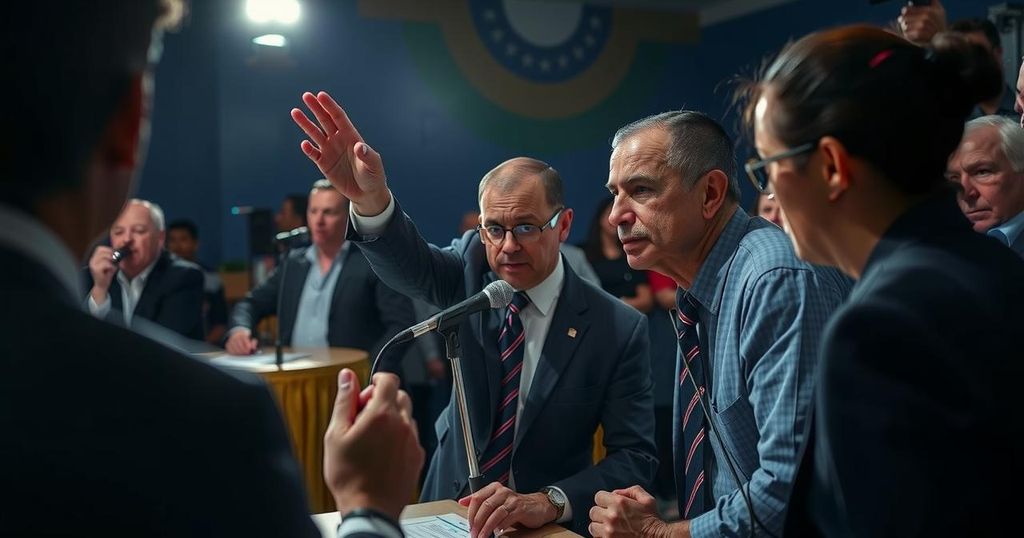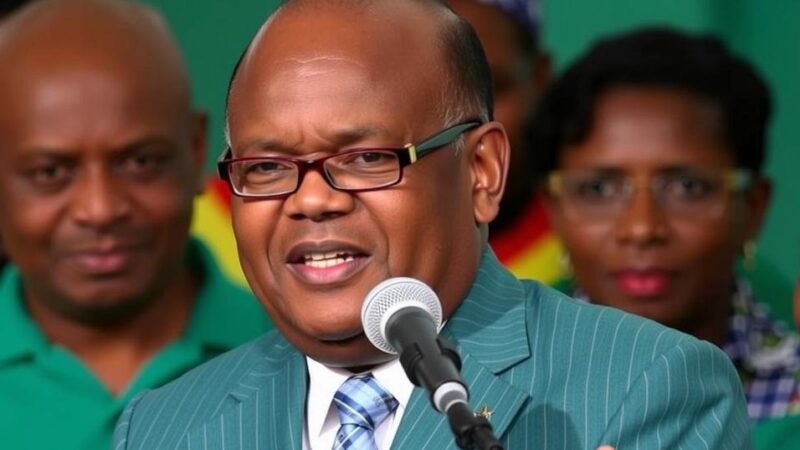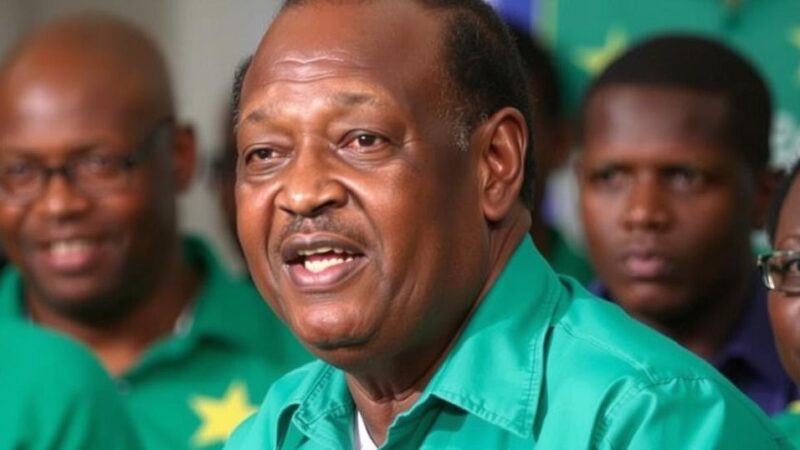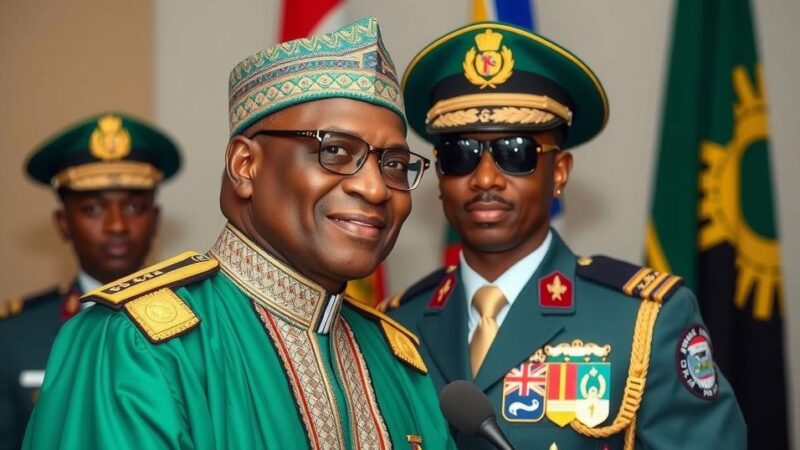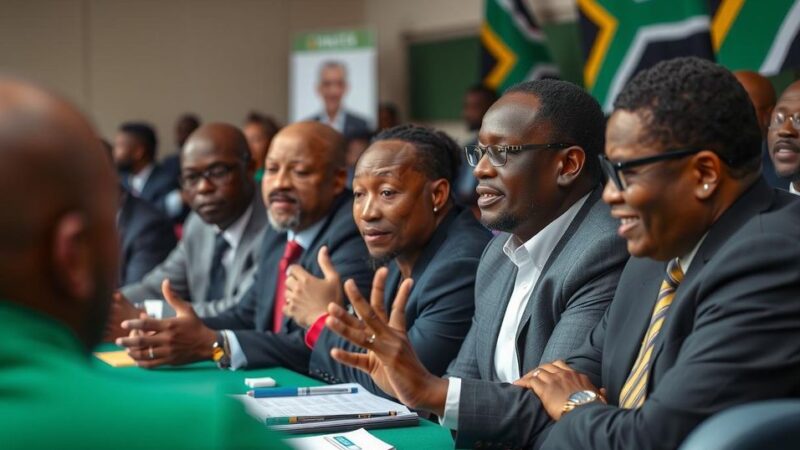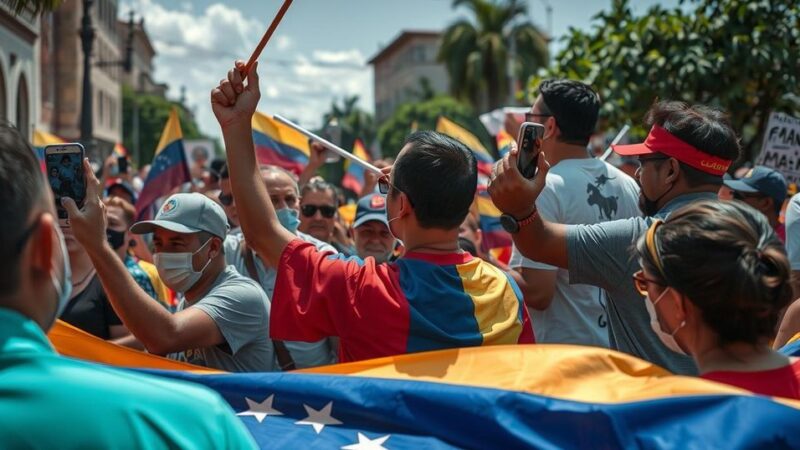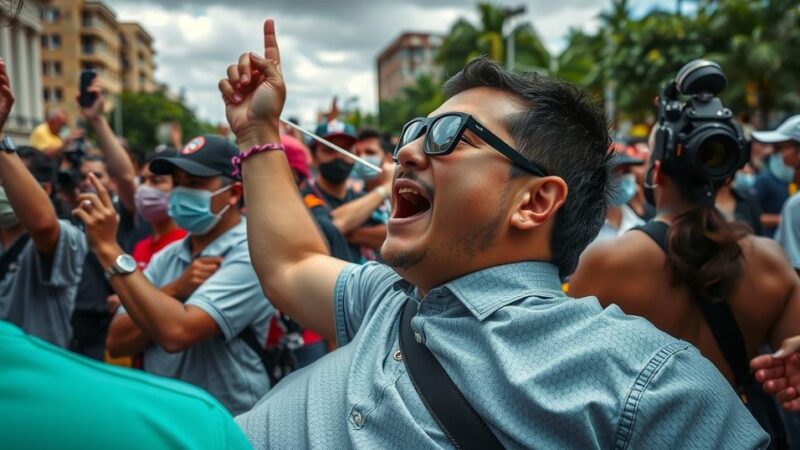Uruguay is set to hold a close second-round presidential election featuring center-left candidate Yamandu Orsi and conservative candidate Alvaro Delgado. The race follows a first round that saw Orsi garner 43.9% of the vote and Delgado 26.8%, with both candidates seeking to attract undecided voters. Final opinion polls indicate a razor-thin margin, as political stability in Uruguay contrasts with turbulence seen in other South American nations.
On Sunday, Uruguay will conduct a crucial second-round presidential election amidst a backdrop of heightened political engagement in South America. Voters will choose between opposition center-left candidate Yamandu Orsi, who advocates for a “modern left” agenda, and incumbent-conservative candidate Alvaro Delgado, who has gained support from allied parties. Recent polls indicate that the race will be exceedingly close, with projections suggesting that fewer than 25,000 votes might separate the two frontrunners.
Uruguay, with a population of approximately 3.4 million, has experienced relative political stability compared to its regional neighbors, characterized by notable overlaps between conservative and liberal factions. Voting stations will open at 8 a.m. and close at 7:30 p.m. local time, with initial results anticipated shortly thereafter. Mr. Orsi captured 43.9% of the vote in October while Mr. Delgado received 26.8%, bolstered by the support from the Colorado Party. Both candidates aim to attract roughly 8% of voters who preferred smaller, independent parties in the initial round, alongside those who previously abstained from voting.
Uruguay has positioned itself as a beacon of stability in South America, recognized for its progressive policies such as the legalization of marijuana and its generally robust economy. As the nation prepares for its presidential election, the political atmosphere reflects general consensus, departing from the more polarized landscapes observed in neighboring countries like Brazil and Argentina. Following the first round of elections, where no candidate achieved an outright majority, the stage is set for a tightly contested runoff between the parties, indicating a desire for continuity versus a fresh direction in governance.
As Uruguay approaches a significant decision in its electoral process, the potential for a very close result forecasts a pivotal moment for the nation. Both candidates demonstrate contrasting visions for the future, with Mr. Orsi leaning towards progressive policies and Mr. Delgado advocating for continuity in governance. The outcome will not only determine the next president but also reflect the broader attitudes of Uruguayan voters amidst a global trend of challenging incumbent parties. The towering question remains whether this election will result in a shift, or if Uruguayan comfort with current leadership will prevail.
Original Source: www.ndtv.com

